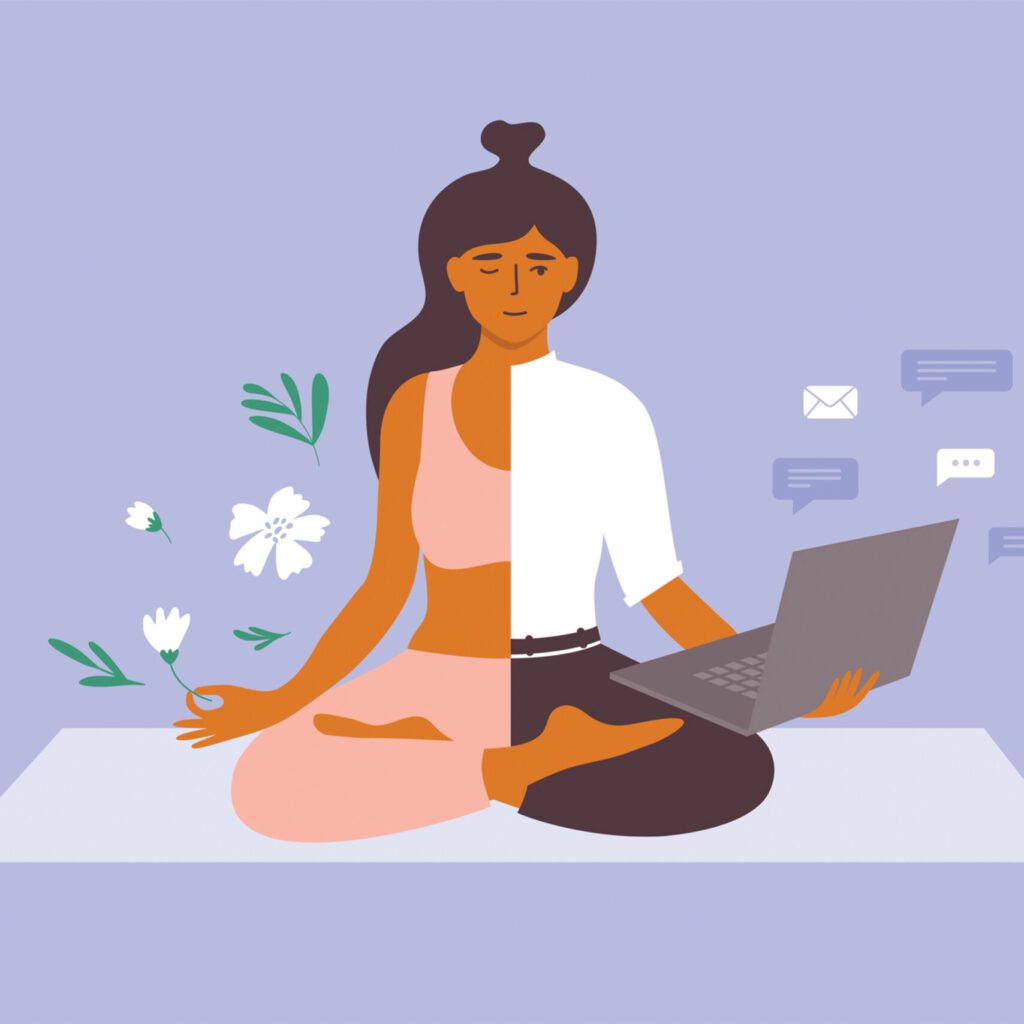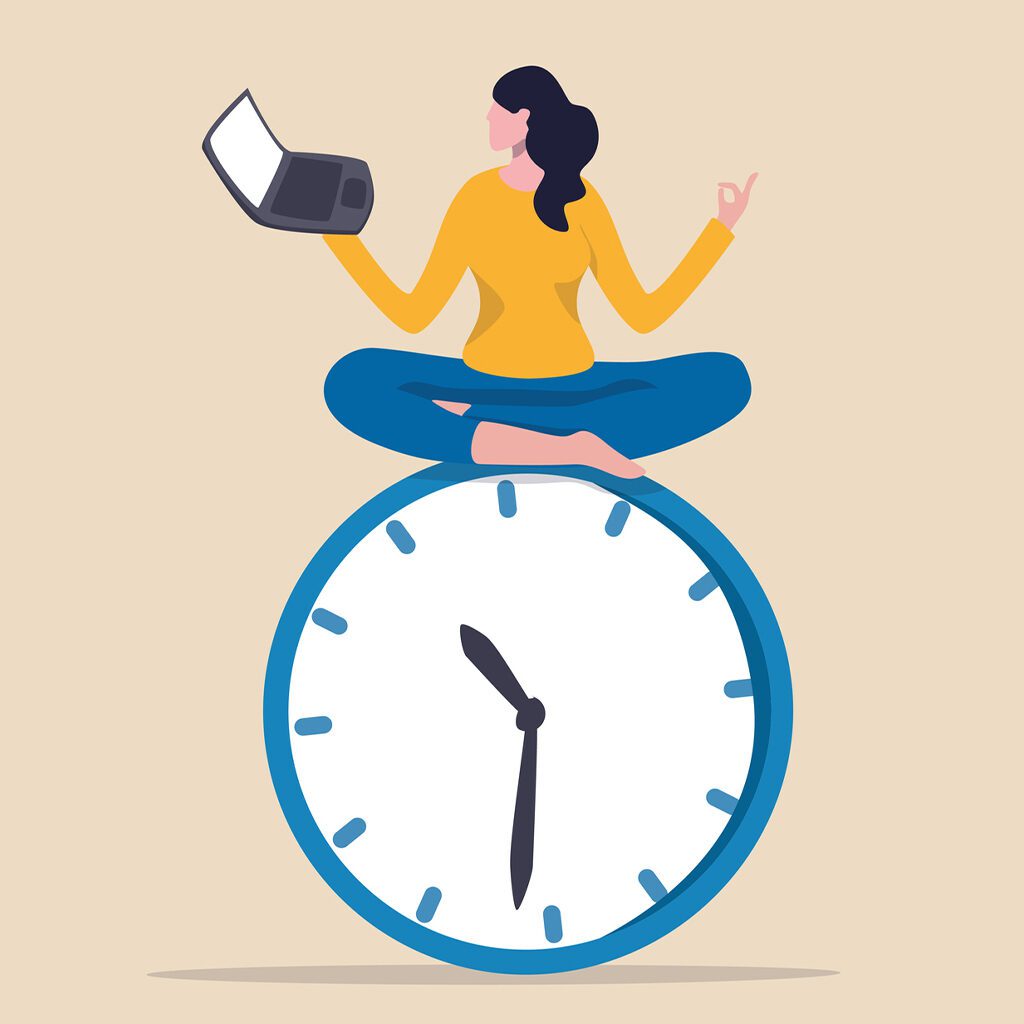Creating a Healthier Work Environment
What’s the secret to better productivity, less stress, and a healthier work environment? While there’s no cure-all for your workplace woes, a practice exists that offers many health-related benefits – in fact, it’s been around for centuries. And in our hurried, hectic jobs, it may be just the ticket to more positive interactions and increased efficiency.
Here, Elizabeth Kabalka, executive director of the Center for Mindful Living, defines the concept of mindfulness and shares strategies for employing this tried-and-true practice at the office.
According to Kabalka, mindfulness is “the ability to be fully present with what is happening, with an attitude of kind curiosity.” It’s devoting your full attention to the task at hand, while also being aware of your thoughts and feelings so that you aren’t as controlled by them. Although it’s not revolutionary, this idea of being present – instead of operating on auto-pilot 24/7 – can transform your workday for good.
“The workplace can be a very time-pressured, intense place,” Kabalka shares. “Mindfulness allows a person to regain perspective that intensity often takes away, so that you’re better able to make decisions, think strategically, and deal with difficult people.”
So yes, being more mindful can translate to better productivity. It can also improve your overall well-being; with less stress, you’ll likely acquire fewer sick days and health care costs – a major benefit to your employer.
Kabalka says, “Ultimately, there is more to mindfulness than dollars and cents. It is a powerful tool for being a better human, for growing emotional awareness and regulation, which means interpersonal relationships go better and work is a happier place to be.”
By applying the following practices, you can reap the benefits of mindfulness and establish a healthier workplace setting.


Tweak your morning routine.
Set aside 20 minutes before work to practice mindfulness, and you’ll feel recharged and ready to tackle the day ahead. “This is the gold standard and how people see the quickest benefit,” Kabalka shares. “Sit someplace you won’t be disturbed, be still, and focus on the sensation of your breathing.” When you get distracted by thoughts (which happens to everyone), kindly bring your focus back to your breathing. Repeat again and again.
Take a break.
Detaching yourself from work mid-day may seem like a counterintuitive – and impossible – task, but regular breaks can actually help your concentration and performance. “Breaks are incredibly important; we are not designed to focus, focus, focus for eight hours every day!” Kabalka says. You can incorporate mindfulness into your break by pushing away from your desk and taking a deep breath. Check in with your body; are there areas where you are tight, like your shoulders or back? “Breathe into those places and see if you can let go,” Kabalka recommends.
Rethink your interactions.
Difficult co-workers can wreak havoc on your mental state. If you find yourself on the verge of a screaming match, use one of Kabalka’s “emergency” mindfulness methods. “Start by unclenching your fist. Notice the sensation of your open palms and keep them open throughout the conversation,” Kabalka says. She also suggests a technique called grounding: “Drop your awareness to the sensation of your feet in your shoes, then feel the sense of gravity holding you firmly to the earth.”
Stop (attempting to) multitask.
“Multitasking is a myth,” Kabalka says. “There are some great ways to structure your work time that are way more effective.” Instead of constantly switching from task to task and losing cognitive momentum along the way, try focusing on a single task at a time. Free yourself of outside distractions, including emails, texts, and office chatter. Then allow yourself a quick mental break before shifting to a new task.
Use your resources! From books and websites to podcasts and mobile apps, there’s an abundance of information on mindfulness that can help you develop more mindful habits. Kabalka particularly likes the Insight Timer app, which she uses to track her practice both at work and home.






Elizabeth Kabalka
Executive Director, Center for Mindful Living

